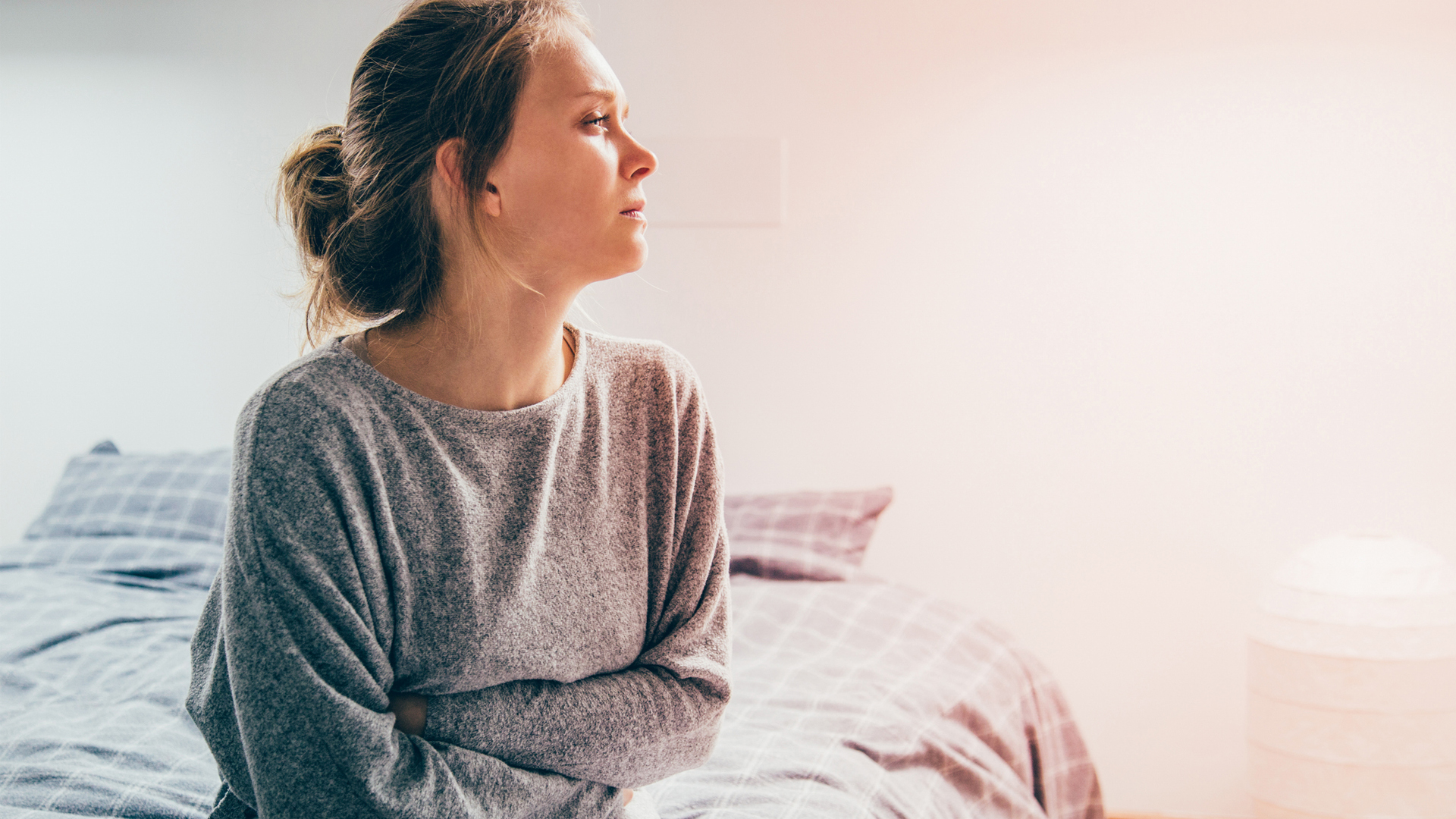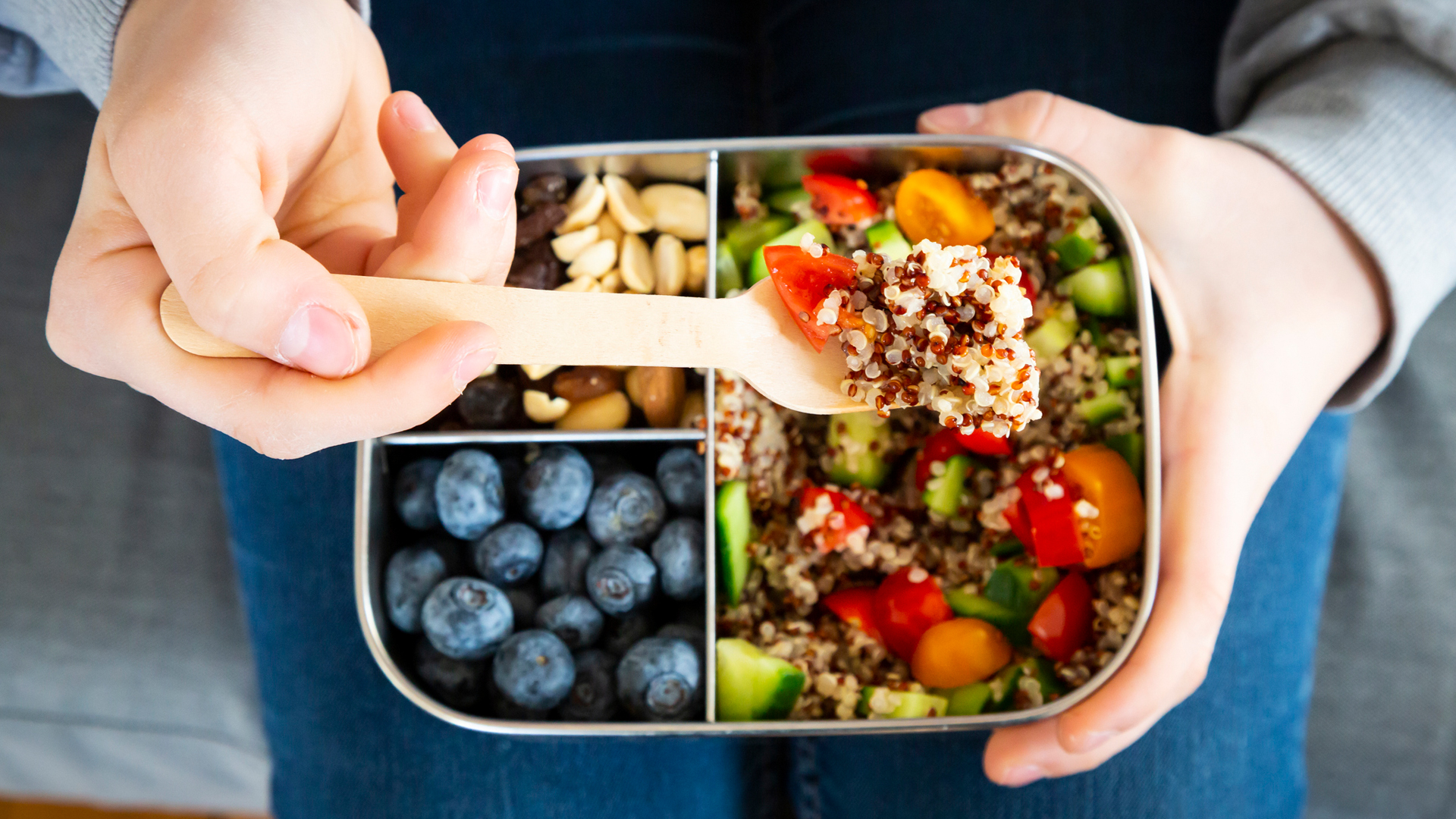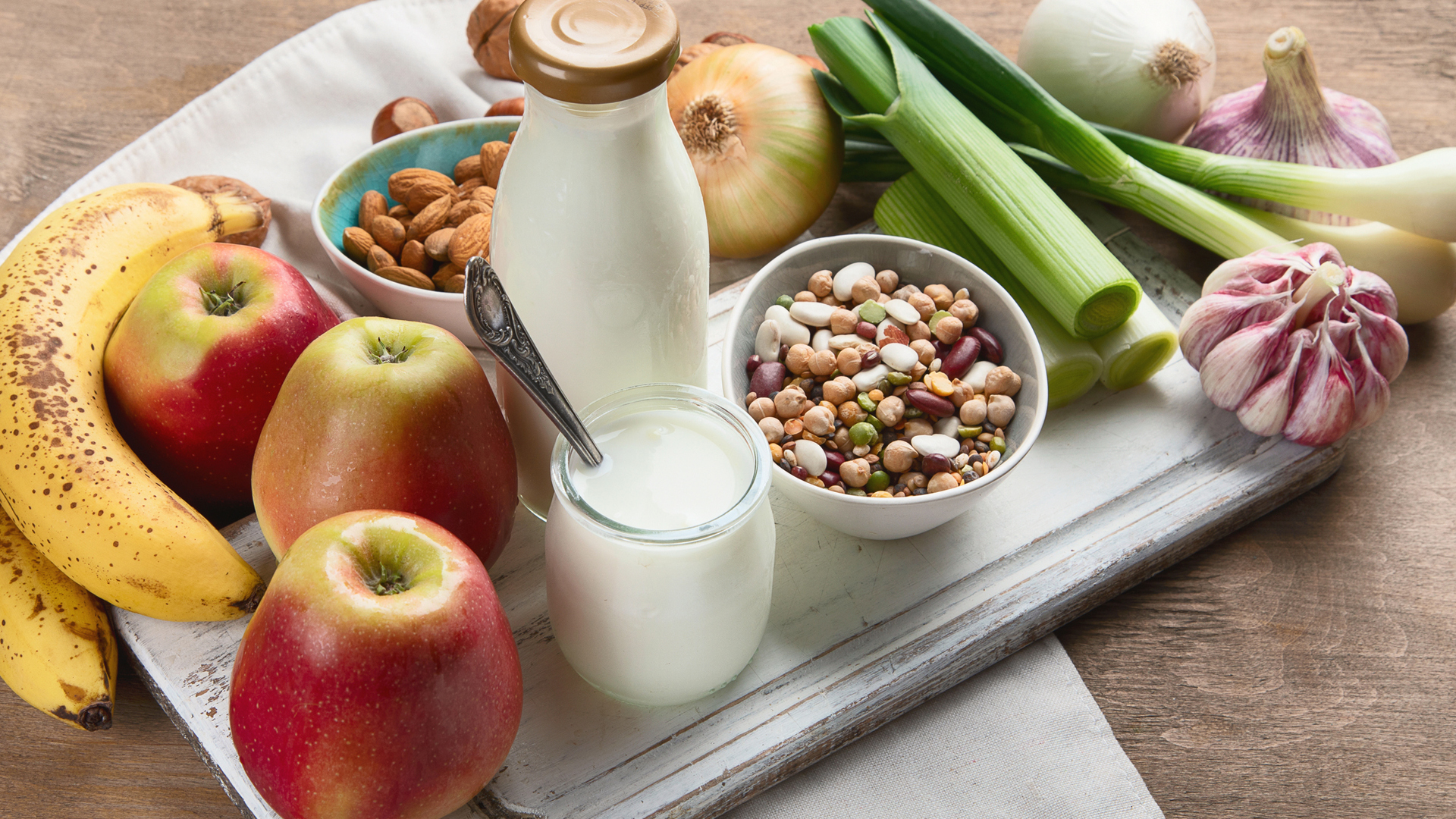How to prevent bloating: Five gas-busting tips
Find out how to prevent bloating with these expert-approved tips

Bloating is a common problem for many people, but it often can be avoided if you know how to prevent bloating. Whether your bloating is due to constipation, or you have an underlying medical condition, there are several steps you can take to reduce the amount of gas you’re producing, or improve your gut microbiome to support healthy digestion.
However, if your bloating is persistent and painful, you should visit your doctor to rule out any more severe underlying causes that might be contributing. You may also need to speak to a dietician about potential dietary triggers that could be causing bloating and discomfort.
So how can you prevent bloating? We’ve spoken to experts for their top gas-busting tips to help you feel comfortable and gas-free — from simple changes to your eating habits, to the best probiotic. Plus, find ways to improve gut health here at Live Science.
What causes bloating?
Dr. Marion Sloan, a medical doctor and Chair of the Primary Care Society for Gastroenterology in the United Kingdom, says that bloating is something she deals with often as a doctor. “It's a common complaint,” she says. “‘Doc, by the end of the afternoon, I can't fasten my skirt. I eat really healthily and yet I'm plagued by this awful boating and wind’.”

Dr. Sloan has been a medical doctor for over 38 years. She has a career-long interest in gastroenterology and is Chair of the Primary Care Society for Gastroenterology in the U.K.
Bloating can have a number of causes, including but not limited to underlying gastrointestinal or gynecological conditions, constipation, food intolerances and poor eating habits.
Dr. Sloan notes that if you bloat every day, you should talk to your doctor. “If it is persistent, see the doctor as coeliac disease and very rarely cancer of the ovary can present with bloating,” she says.
How to prevent bloating
Change your eating habits
“Don’t talk and eat at the same time,” advises Dr. Sloan. It makes sense that you might want to have a chat over dinner, as it is often a social event or family occasion, but this might be one of the culprits causing your bloating. The speed at which you eat can also contribute to your bloating and it is worth slowing down and making sure to chew your food so that you aren’t gulping air into your stomach as you eat.
Registered Dietitian Nutritionist Roxana Ehsani adds: “If you are always on the go and tend to eat quickly, it can cause you to possibly not chew well enough to break down the food and can cause you to also swallow a lot of air bubbles too, which can lead to bloating.”

Roxana Ehsani is a Board-Certified Specialist in Sports Dietetics and a National Media Spokesperson for the Academy of Nutrition and Dietetics. She holds a Bachelors of Science in Human Nutrition, Foods and Exercise from Virginia Tech and a Masters of Science in Clinical Nutrition and Dietetics from the University of Pittsburgh and completed her dietetic internship at the University of Pittsburgh Medical Center.
Dietary changes
Particular foods can cause bloating, according to Dr. Sloan. She recommends limiting beans and cabbage, some summer fruits and sorbitol, an artificial sweetener.
A low FODMAP diet might help you to reduce the amount of fermentable foods you consume, which could in turn reduce bloating. “Learn which foods create gas in your tummy,” says Dr. Sloan. “It can be different for different people. It depends on which bacteria you have living in your colon.”
- Related: How to do an elimination diet

Try taking Probiotics and Prebiotics
Both probiotics and prebiotics can help to prevent bloating as they promote a healthy gut microbiome.
“Probiotic rich foods can help promote a healthy gut microbiome, which for some people needs to be restored, especially after a bout of antibiotics for example,” explains Eshani. “Probiotics are good bacteria, they contain live and active cultures, so consume foods like yogurt with live and active cultures or drink kefir. Prebiotics and probiotics work together, prebiotics promote good bacteria in the gut, and can help support and improve gut health as well. Foods rich in prebiotics are bananas, onions, garlic, asparagus, beans, and whole grains.”

Avoid carbonated drinks
Eshani and Dr. Sloan both recommend avoiding fizzy drinks, as the carbonation and some ingredients can cause bloating and stomach upset.
“Sorbitol is often present in fizzy drinks, which can contribute to bloating,” says Dr. Sloan.
“Avoid sparkling waters and carbonated beverages, as they make you swallow air bubbles,” says Eshani.
A review in Cancer Treatment and Research indicates that the carbon dioxide in carbonated soft drinks can alter gastrointestinal physiology, including the mucous membrane that lines the stomach wall and protects us from our stomach acid and digestive enzymes. The review also mentions that the carbon dioxide in these drinks might impact the mechanical pressure in our digestive system caused by gas.
Eat more fiber
According to Eshani, not eating enough fiber in the forms of fruits, veggies, whole grains and legumes can cause constipation which can also cause bloating and irregular bowel movements. Fiber acts as a bulking agent that helps move food through our digestive system, according to a 2021 review in Nutrients regarding chronic constipation.
Quick tips
- Avoid chewing gum. It can cause you to swallow a lot of air bubbles which can cause bloating.
- Eating lots of salt like salty snacks like potato chips or pretzels, or eating a lot of pre-made foods high in sodium, can cause you to hold on to extra water, and cause bloating.
- Drinking ginger, peppermint or fennel tea may calm down bloating
This article is for informational purposes only and is not meant to offer medical advice.
Sign up for the Live Science daily newsletter now
Get the world’s most fascinating discoveries delivered straight to your inbox.

Lou Mudge is a health writer based in Bath, United Kingdom for Future PLC. She holds an undergraduate degree in creative writing from Bath Spa University, and her work has appeared in Live Science, Tom's Guide, Fit & Well, Coach, T3, and Tech Radar, among others. She regularly writes about health and fitness-related topics such as air quality, gut health, diet and nutrition and the impacts these things have on our lives.
She has worked for the University of Bath on a chemistry research project and produced a short book in collaboration with the department of education at Bath Spa University.










